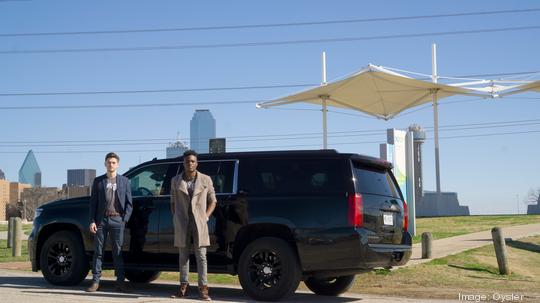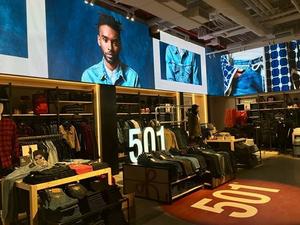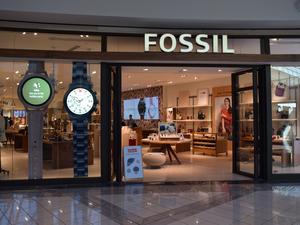
The pandemic has changed the way people interact with each other. And with the rise in e-commerce driven by it, along with the new tech that allows for more personalized targeted ads, it will likely change the way we interact with different brands.
That’s the way Bo Sijuade and Fermin Morales co-founders of digital media startup Oyster, see it. Due to the trends changing the way companies and consumers interact, despite a series of setbacks in 2020, the company sees itself positioned to take off, with plans to expand statewide by the end of this year.
“We were super unfamiliar with the startup landscape at first. It’s a society or community that we stumbled into,” Sijuade, who also serves as CEO, told NTX Inno
The Dallas-based startup, launched in 2019, operates a digital out-of-home network that uses GPS data connected to an interactive screen installed in rideshare driver’s vehicles that sends targeted advertisements based on where a rider is at a certain time of day. Companies pay to advertise and rideshare drivers are paid for having the screens in their vehicles.
“We lived on McKinney Avenue, always going out and we kind of got together at Happiest Hour one day and we said, ‘It would be pretty cool if our Uber drivers could recommend a place to go that was better than where we always go,’” Sijuade said, “It’s basically live-location data that’s triggered, and the campaigns are configured to play based on what the client wants.”
The company kicked off its first year with a pilot program in the summer that drew clients like Hyatt, FC Dallas and Klyde Warren Park. And coming into 2020, things looked bright for Oyster, closing a nearly $204,000 friends-and-family round early in the year – though Sijuade and Morales said raising funds was itself a challenge being both young (25) and founders of color.
“We’ve had to overcome it as we’re communicating to clientele, potential clientele or potential partners, it’s a factor of not necessarily just being minority-led but it’s a factor of being young, being a millennial,” Sijuade said. “We had to fight tooth and nail to prove that we’re a legitimate company, we’re here to stay.”
Then the pandemic hit the U.S. Rideshare companies that Oyster used, saw their ridership dry up in early spring. At that time, a four-person team hit the streets of DFW, having interns pitch the product to drivers and having leadership meeting personally with business owners to bring them onto the platform. Laughing, Sijuade said he and Morales “walked the entirety of Dallas proper going door to door.”
“One of the most detrimental aspects was we got our funding right before COVID happened, with all these expectations, hopes and aspirations for our company, and unfortunately, we had to pivot what our expenditure looked like,” Morales said. “Instead of being able to hit the ground running, we had to pivot to see how we could help our community that was impacted.”
That help came through the donation of free ad space to local businesses, especially restaurants, which the founders saw were still open but also struggling to stay afloat. The company also began helping with low-cost ad production for businesses that needed it. Morales said they made the decision not only to give back to the community but also to build relationships with future customers.
“You have to take big bets, and our big bet is most of the companies are going to survive… we said, ‘Okay, this is an opportunity, not a weakness,’ and through the time when business owners and management staff are looking for things to do, this is actually a good time to approach them with their guards down,” Sijuade said. “We chose to be aggressive during the downtime.”
During the pivot, Morales also had to deal with the loss of his sister to cancer. And though the rideshare drivers contracted with Oyster to complete at least 300 rides a month are now easily making those numbers again, the founders said, due to budget cuts the company had to let go of its full-time team. It also lost the office space at Capital Factory it was planning to move into in November after being accepted into its accelerator program in October after Capital Factory closed its doors in Dallas.
“With very unfortunate things like COVID, they will also produce opportunities for good,” Sijuade said.
As vaccines roll out, Oyster said it has seen renewed interest in its tech from a number of customers, including ones that were previously interested but held off due to the economic uncertainty created by the pandemic. And emerging from the pandemic, the Oyster founders see a number of trends to lift their sails into the new year. For one, Sijuade said it has forced nearly all brands to become digitally-enabled in some way. In addition, he said many are looking to stretch their advertising budgets with highly-targeted marketing, adding that much of that is moving to e-commerce.
“The large picture is… we’re on the forefront of understanding how consumers behave around mobility,” Sijuade said.
Looking ahead, Oyster hopes to expand beyond DFW to Houston, Austin and San Antonio by the end of the year. As more customers become aware of the company, allowing it to build out its network with more user data, Oyster sees itself become an international company.
“Every day is a learning experience and every day is going to be an opportunity for us to grow as a company and as individuals as well,” Morales said. “Making the community more connected through technology is also something that I think in the near future is truly going to be quintessential, as we have different ways to communicate information. I think being able to communicate through mobility-based media, somewhere that’s so direct and close up and personal as the back of an Uber is going to be huge information and possibilities.”








